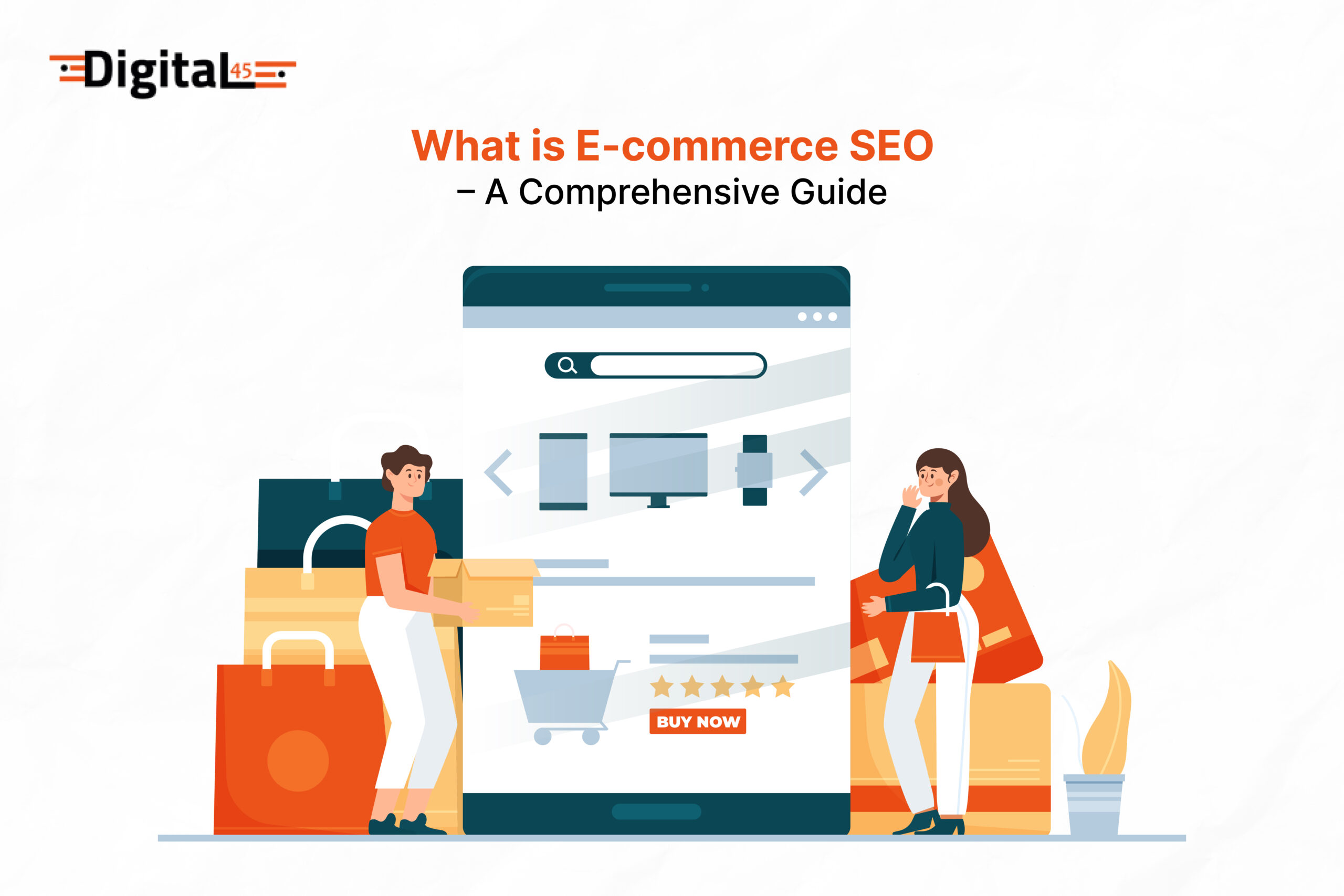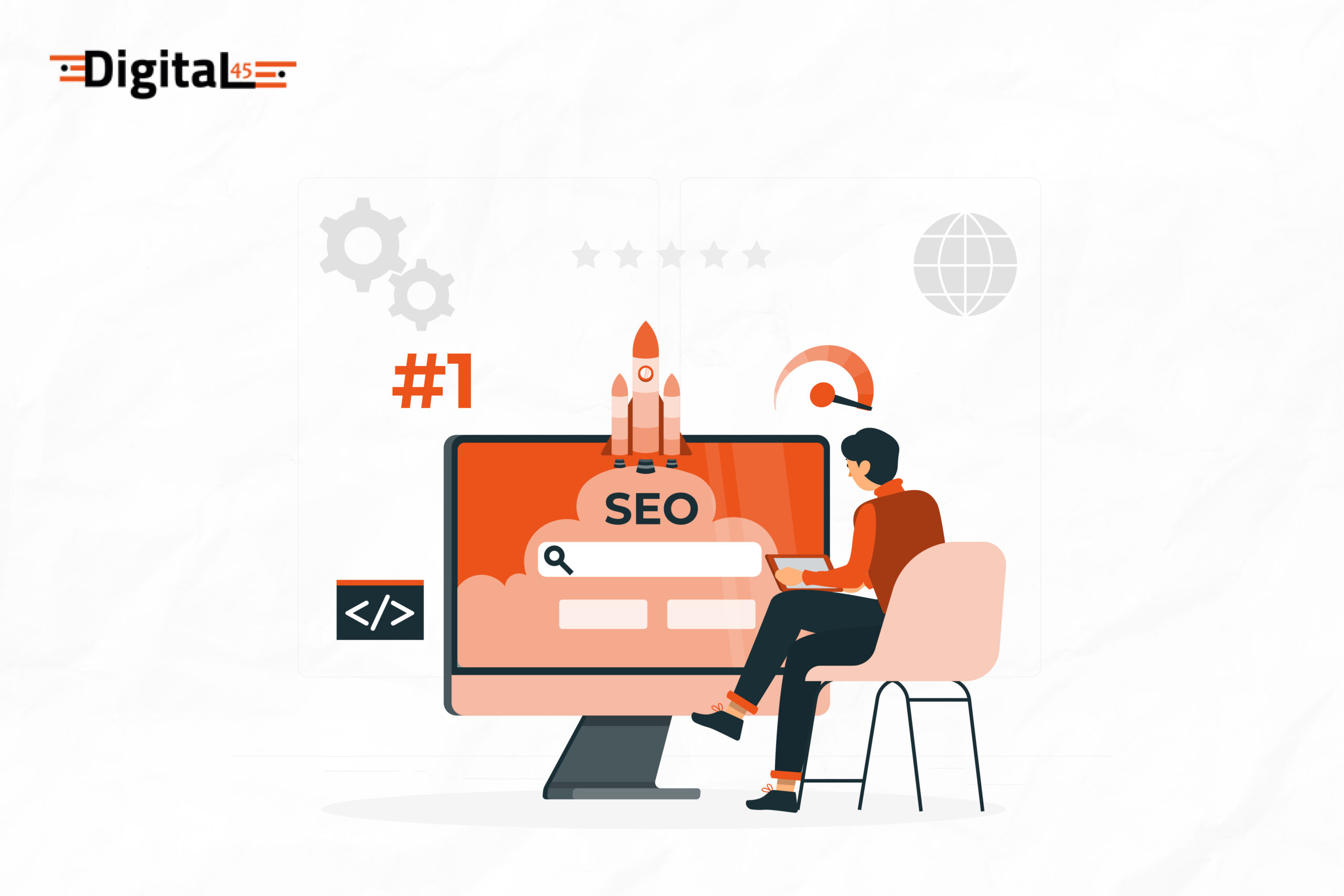Hey there, e-commerce enthusiasts and digital marketers! In today’s digital age, where online shopping has become the norm, e-commerce businesses must understand the ins and outs of E-Commerce SEO (Search Engine Optimization).
The Ahmedabad SEO for your E-commerce website can significantly impact your online store’s visibility, traffic, and, ultimately, your revenue.
So, let’s embark on a journey to demystify E-Commerce SEO and discover why it’s an absolute must for your online business.
What is E-commerce SEO?
E-commerce SEO, also known as ecommerce search engine optimization, is a specialized branch of SEO explicitly tailored for online retail stores. It’s all about optimizing your online store’s website and product pages to rank higher on search engine result pages (SERPs). When your pages rank higher, they become more visible to potential customers searching for your products. As we all know, visibility is key in the digital marketplace.
Unlike paid advertising, where you pay for every click, E-Commerce SEO allows you to attract highly relevant organic traffic at a lower cost. Search engines like Google, Bing, and Yahoo determine where your website ranks. To improve your basic search engine optimization of your e-commerce site, you must consider various factors, including your website’s content, technical setup, mobile-friendliness, and more. Let’s investigate why E-Commerce SEO is essential for your online success.
The Importance of E-Commerce SEO
Let’s explore Why search engine optimization for ecommerce is necessary;
1. Better User Experience
One of the fundamental principles of Google’s ranking algorithm is providing users with a good experience. When your online store targets the right keywords for your target audience and offers answers to their queries, Google views it as a positive user experience. This, in turn, boosts your ranking.
On the flip side, if users click on your website but immediately click away (a high bounce rate), it signals a negative experience to search engines, which can harm your ranking. Optimizing user experience for SEO benefits enhances your search engine visibility and makes your website more attractive and user-friendly.
 2. Expanding Your Reach
2. Expanding Your Reach
E-Commerce SEO helps your online store receive more traffic and expands your brand’s reach. When your site ranks organically for relevant keywords, it establishes brand authority and sets you apart from competitors. Additionally, organic traffic can be retargeted effectively through paid advertising, making E-Commerce SEO an excellent starting point for a comprehensive digital marketing strategy.
3. Attracting Better Quality Traffic
Ranking higher in search results for relevant keywords attracts visitors who are genuinely interested in your products or services. These visitors are more likely to convert into customers because they already seek what you offer. As a result, your conversion rate improves, increasing sales and revenue.
4. Cost-Efficiency
Compared to paid advertising, search engine optimization in e commerce is a cost-effective channel. You pay for each click with paid ads, and the costs can add up quickly. In contrast, organic traffic flows in once you’ve optimized your website without incurring per-click expenses. It’s like having a 24/7 salesperson who doesn’t require a pay check.
5. Low Maintenance
Once you’ve implemented your E-Commerce Ahmedabad SEO strategy, it works for you. Unlike email marketing or paid advertising, which demand ongoing campaign management, SEO is relatively low maintenance. However, it’s essential to periodically review and refresh your content to keep it up-to-date and relevant.
Challenges of E-Commerce SEO
While the benefits of E-Commerce SEO are substantial, it’s essential to address the challenges that can hinder your success:
1. Lack of Quality Content
One common mistake in E-Commerce SEO is rushing to optimize without considering the quality of content. Product pages often suffer from duplicate or unoriginal descriptions. To excel in E-Commerce SEO, prioritize unique, informative, and value-added content that resonates with your audience.
2. Neglecting Technical Setup
Technical SEO is the backbone of any successful SEO strategy. HTTPS, mobile-friendliness, page speed, indexation, and XML sitemaps are often overlooked. Ignoring these technical aspects can negatively impact your website’s performance in search results.
E-Commerce SEO Best Practices
To maintain a consistently robust SEO strategy for ecommerce website, consider these best practices:
1. Define Buyer Personas
Before diving into keyword research, define your buyer personas. Understanding your target audience helps you streamline your efforts and create content that resonates with potential customers.
2. Craft Unique Titles and Content
Avoid duplicate content and create unique, relevant content for each product or page. Incorporate focus keywords naturally within your content, headers, and meta tags.
3. Refresh Content Periodically
SEO is an ongoing process. Periodically revisit and refresh your content to keep it relevant and up-to-date. Also, consider consolidating pages competing for the exact keywords to avoid cannibalization.
4. Don’t Ignore Low-Volume Keywords
While high-volume search engine optimization keywords are attractive, consider highly relevant low-volume keywords. Specificity can help you capture valuable, highly interested traffic.
5. Build High-Quality Backlinks
Off-page SEO is essential. Target reputable third-party websites to share your content, build authority, and drive traffic to your online store. Explore link exchanges, guest posting, and digital PR strategies.
KPIs to Measure E-Commerce SEO Success
Tracking the success of your E-Commerce SEO efforts is essential. Here are key performance indicators (KPIs) to monitor:
1. Organic Traffic
Measure the number of visits generated from organic search engines. Google Analytics provides valuable insights into your organic traffic.
2. Keyword Rankings
Track your rankings for specific keywords relevant to your products or services. The free search engine optimization tools like Google Search Console and SEMRush can help you monitor keyword performance.
3. Organic Click-Through Rate (CTR) and Bounce Rate
Evaluate how users interact with your content through CTR and bounce rate metrics. A high CTR and low bounce rate indicate effective user engagement.
4. Revenue
Ultimately, revenue is a crucial KPI. Measure how much of your organic traffic converts into revenue to assess the value of your E-Commerce SEO efforts.
Let us Handle your E-Commerce SEO!
In conclusion, E-Commerce SEO is not just a buzzword; it’s a fundamental aspect of succeeding in the competitive world of online retail. With connecting Digital45 you can easily take your e-commerce site to the top. Our Ahmedabad SEO strategies will prioritize user experience, expanding your reach, attracting quality traffic, and optimizing cost-effectively, you can leverage the power of E-Commerce SEO to drive growth and profitability for your online store. So, gear up, implement best practices, and watch your e-commerce business thrive in the digital landscape with us!



